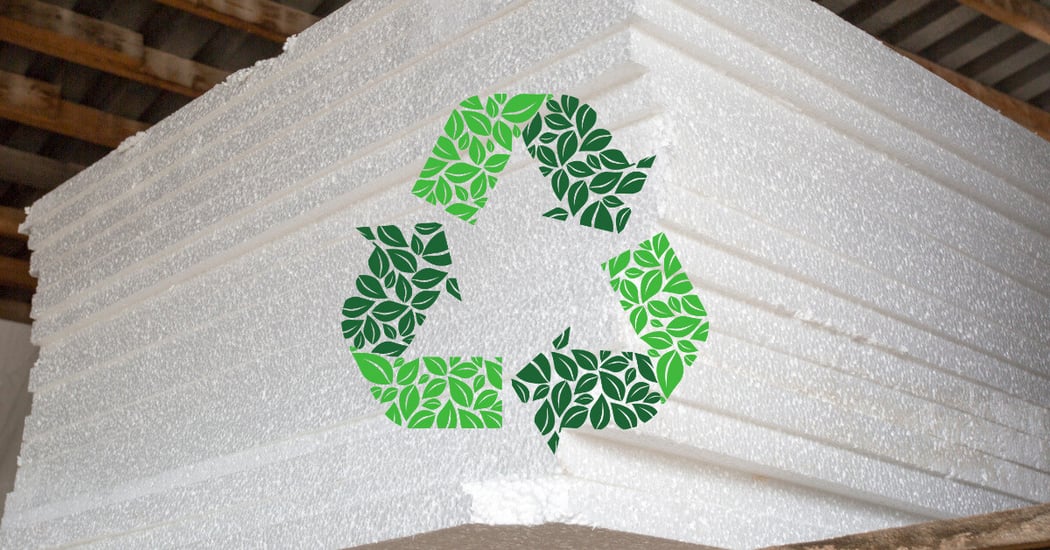
3 Burning Questions about EPS Foam Insulation—Answered
Expanded polystyrene (EPS) foam insulation is a versatile, lightweight, and cost-effective solution widely used in residential, commercial, and industrial construction. Known for its excellent thermal resistance and durability, EPS foam board insulation is a go-to choice for walls, roofs, and below-grade applications. Yet, questions about its environmental impact, safety, and performance compared to other materials often arise. Let’s explore these key topics to help you make informed decisions.
1. Is EPS Foam Insulation Environmentally Friendly?
EPS insulation is derived from petroleum, a non-renewable resource, and is not biodegradable. However, it offers several environmental benefits:
-
Energy efficiency: EPS has a low thermal conductivity, reducing energy consumption and greenhouse gas emissions by maintaining indoor temperatures more effectively.
-
Recyclability: EPS can be recycled by grinding it into small pieces and reprocessing it into new products, minimizing landfill waste.
-
Longevity: Its durability means it can last for decades without replacement, reducing the frequency of material disposal.
While not entirely eco-friendly, EPS's energy-saving properties and recyclability contribute positively to environmental sustainability.
2. Is EPS Foam Insulation Safe to Use?
Safety concerns regarding EPS foam insulation typically involve its behavior under high temperatures and potential chemical emissions. It's important to note:
-
Fire resistance: EPS is treated with flame-retardant additives during manufacturing, enhancing its resistance to ignition.
-
Chemical stability: Under normal conditions, EPS is chemically inert and does not release harmful substances. However, if burned, it can emit toxic fumes, so it should not be exposed to open flames.
-
Handling precautions: When cutting or installing EPS, wearing protective gear like gloves and masks is advisable to prevent skin irritation and inhalation of fine particles.
Overall, EPS foam insulation is safe for use when installed correctly and kept away from fire sources.
3. How Does EPS Compare to Other Insulation Types?
When evaluating insulation options, consider thermal performance, cost, and durability:
-
Thermal performance: EPS offers a consistent R-value, maintaining its insulating properties over time. While extruded polystyrene (XPS) may have a slightly higher initial R-value, EPS's performance remains stable, especially in moist conditions.
-
Cost-effectiveness: EPS is generally more affordable than XPS and spray foam insulation, making it a budget-friendly choice for many projects.
-
Durability: EPS is resistant to moisture and mold, ensuring long-term performance without degradation. Its closed-cell structure prevents water absorption, a common issue with other insulation types.
In summary, EPS foam insulation provides a balance of performance, cost, and durability, making it a competitive option among insulation materials.

Bonus: Applications and Installation Considerations
EPS foam board insulation is suitable for various applications:
-
Walls and roofs: Its lightweight nature simplifies installation on vertical and horizontal surfaces.
-
Below-grade applications: EPS's moisture resistance makes it ideal for basements and foundations.
-
Vapor barriers and house wraps: When combined with appropriate barriers, EPS enhances overall building envelope performance.
During installation, ensure proper sealing at joints and edges to maximize thermal efficiency and prevent air leaks.
Place Your Insulation Project in Our Hands
With over 50 years of experience, Sterling Manufacturing specializes in custom foam solutions, including EPS, polyurethane, and polyethylene products. Our commitment to quality craftsmanship and personalized service ensures that your insulation projects meet the highest standards.
Whether you're insulating a residential home or a commercial facility, our team is ready to provide tailored solutions that align with your specific requirements. Contact us today to learn more about our offerings and how we can assist with your next project.

Leave a Comment
Your email address will not be published.